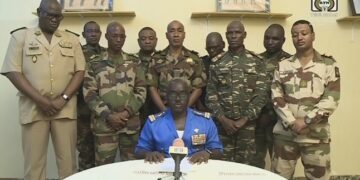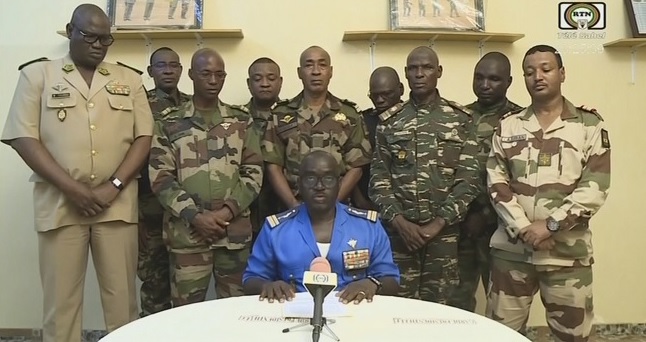By John Ikani
White House officials have asserted that there is “no indication” of Russian involvement in the military coup that led to the ousting of Niger’s democratically-elected president.
National Security Council spokesperson John Kirby on Tuesday addressed concerns regarding Moscow’s potential role in the turmoil, telling newsmen that the Biden administration has found “no evidence of Russia’s direct or indirect support for the coup.”
Contrastingly, Ukrainian presidential aide Mykhailo Podolyak pointed fingers at Russia, firmly claiming their involvement in the so-called “military coup” in Niger.
According to Podolyak, Russia employs a typical tactic of diverting attention and exploiting moments of instability to escalate conflicts.
He went on to draw parallels with neighbouring Burkina Faso and Mali, where the Russian paramilitary Wagner Group is allegedly playing an active role, further fueling suspicions about Russia’s intentions to undermine global security order.
Amidst the rising tensions in West Africa, the situation remains precarious as fellow military juntas pledge their support to Gen. Abdourahamane Tchiani, the commander of Niger’s presidential guard, who declared himself the head of a transitional government after the overthrow of President Mohamed Bazoum on Friday.
Leaders of the Economic Community of West African States (ECOWAS) have given Tchiani a one-week ultimatum, urging him to restore constitutional order in the country promptly.
Failure to do so may result in military intervention by regional countries to address the instability.
Echoing ECOWAS’ stance, the African Union has also issued a warning to military leaders in Niger.
They have been given 15 days to relinquish power, return to their barracks, and restore constitutional authority.
The situation continues to unfold, and the international community closely watches the developments in the region.




































